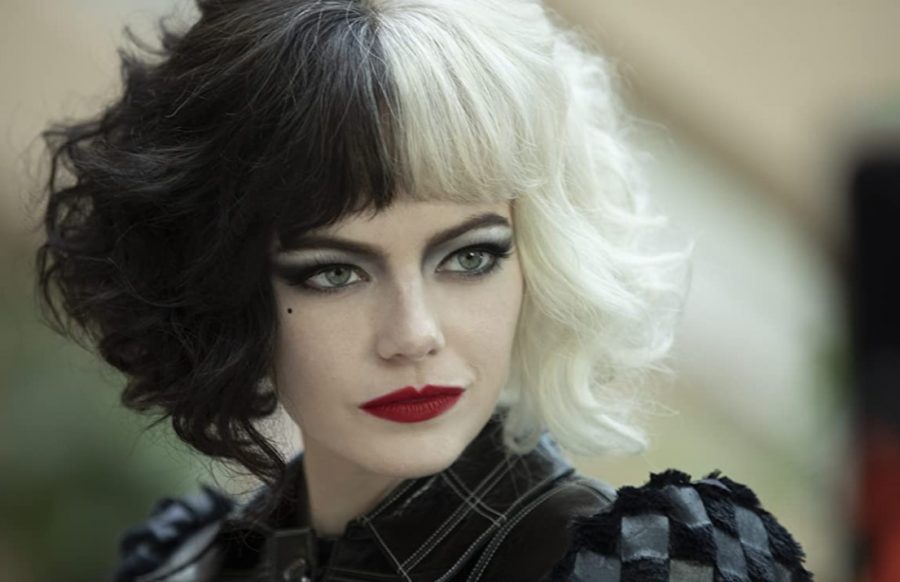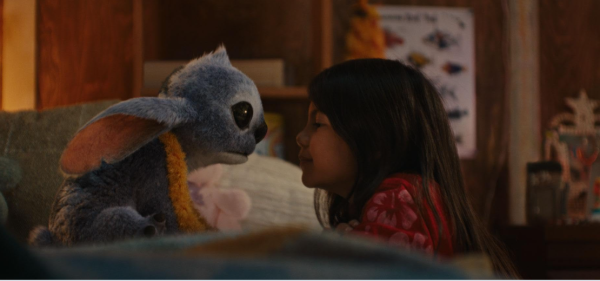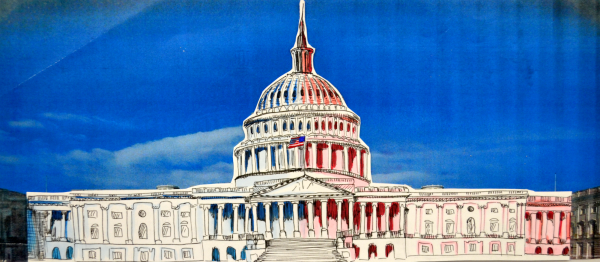REVIEW: On two fronts, ‘Cruella’ disappoints
I have always adored Disney movies and fairy tales, seeing every new film in theaters without fail. Over the past decade, however, Disney has transitioned towards a different type of storytelling: live action reboots. Whether these movies are simply cashing in on intellectual property and nostalgia, or if they’re actually a refreshing take on beloved tales, they’ve unfortunately become irrelevant to me, especially with the release of the latest release, “Cruella.”
“Cruella” is riding on the wave of movies such as “Maleficent,” which used a live-action medium to change the narrative around Maleficent, one of Disney’s most evil and iconic antagonists. I genuinely loved “Maleficent,” since it was both a great telling of “Sleeping Beauty” and it stayed true to the story while still applying an incredibly interesting lens to it. “Maleficent” works because it does not try to reinvent the (spinning) wheel; instead, it pinpoints identifies one element — a true love’s kiss — to innovate and develop. Additionally, very little is known about Maleficent within the Disney canon, which allowed for the film’s writers to create a nuanced and engaging backstory for the movie’s titular character.
However, the lack of an origin story is what hurts “Cruella,” especially as a concept piece, since I refuse to pay Disney 20 bucks to watch it. Within the traditional Disney mythos, Cruella de Vil is a fashion designer who cares more about her work and designs than the lives of 101 dalmatian puppies, motivating her attempts to kill the pups for their fur. Such a cruel act, murdering innocent puppies, excludes Cruella from the type of narrative given to Maleficent. It is crucial that Disney realizes not every villain is a victim. Light spoilers for the film ahead, but: While viewing the effects of victimhood and betrayal strengthens Maleficent’s character and garners sympathy for the audience, watching a frankly comical scene of Cruella’s mother meet an untimely end at the hands of a pack of dalmatians seems outlandish and far from valid motivation.
Another aspect which makes “Cruella” so disappointing to me originates from the childhood love of the ABC TV show “Once Upon a Time.” Within “Once Upon a Time,” dozens of famous fable and fairytale characters are transported into the modern day town of Storybrooke, including Cruella. What “Once Upon a Time” does so well with Cruella’s arc is that it tricks the audience into sympathy. Many of the villains, such as the Evil Queen, are fleshed out and humanized across the series, and so the audience is expecting that treatment for Cruella, hearing about how her mother murdered her father when she was a young girl. The gripping reveal, which I find so brilliant, is that Cruella herself was the killer and all the stories of her tragic, misfortunate childhood were fabricated so she could gain power through the empathy of others. Cruella, just like her hair, is a black and white character, not intended for the nuance I’m sure her latest feature film will attempt to squeeze her into.
Along with my narrative and conceptual issues with the Disney film “Cruella,” it raises another grievance of mine. According to press releases and news articles, “Cruella” features Disney’s first openly gay character! Wait, no, that’s not right… their first openly gay character was Lefau from Beauty and the Beast (2018), I thought? … or those two female resistance fighters who shared a background kiss in “the Rise of Skywalker”? Or any of the characters from the five other times Disney has made this claim.
How many “first” openly gay characters are we as the audience going to have before Disney finally gets it right and announces their second one? A crucial issue with this type of queer representation is that it appears, from the perspective of a queer person, to be purely performative, like corporate floats at pride. What companies, especially those in the media and entertainment industry like Disney is, need to recognize is that queer people do not exist as only a domestic headline and two movie frames which will be cut in foreign releases, they do not exist solely as an exploitable market during the month of June. This noncommittal, exploitative use of queerness is deeply irritating since it creates no change: nothing positive and nothing negative comes from it, it merely poses static.
Static is useless, and it will not usher in queer liberation. So please, for the love of god, Disney, keep the next eight “first openly gay” characters on the drawing board until you’re actual ready to commit to genuine representation.







![[VIDEO] School Spotlight for Spring 2025](https://thewessexwire.com/wp-content/uploads/2020/03/westessex-475x356.jpg)
![[VIDEO] Varsity Media Day: Winter 2025](https://thewessexwire.com/wp-content/uploads/2025/02/vmd-25winter-600x450.jpg)

